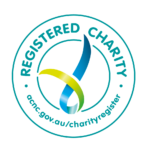When kids get cancer, the last thing they want to do is exercise. Often their lives are turned upside-down and the things they love doing are suddenly out of reach.
We know that movement helps cancer kids tolerate treatment better and maintain strength. It also enhances their mental health and for the many who beat cancer it helps them return to their previous lives. However, for parents, getting sick kids to move can seem impossible.
At Little Big Steps, we use technology (activity trackers & virtual reality) and physiotherapist-supported exercise medicine programs to get kids moving.

